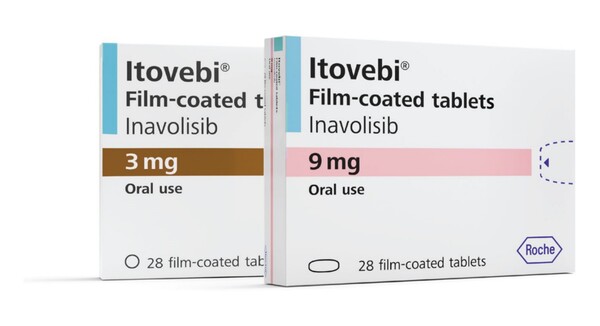Roche Korea said it has received marketing approval from the Ministry of Food and Drug Safety (MFDS) for Itovebi (ingredient: inavolisib), a targeted therapy for patients with PIK3CA-mutated, hormone receptor-positive (HR+), and human epidermal growth factor receptor 2-negative (HER2-) breast cancer.

The newly approved indication covers adult patients with locally advanced or metastatic breast cancer harboring PIK3CA mutations who experience disease recurrence during adjuvant endocrine therapy or within 12 months of completing such therapy.
The greenlight marks a strategic expansion for Roche, which has long dominated the HER2-positive space with drugs like Herceptin and Perjeta.
Itovebi is approved in combination with palbociclib and fulvestrant. Patients previously treated with adjuvant CDK4/6 inhibitors must have completed that treatment more than 12 months prior. For premenopausal women and men, an LHRH antagonist should be administered concurrently.
HR+ breast cancer accounts for about 60 percent of all breast cancer cases, with an estimated 40 percent involving PIK3CA mutations. Activation of PIK3CA mutations leads to dysregulation of the PI3K signaling pathway, making standard therapies less effective and resulting in poor prognoses.
The MFDS approval is based on the phase 3 INAVO120 trial, which enrolled 325 patients whose disease recurred during or within 12 months of adjuvant endocrine therapy and who had not received prior systemic therapy for advanced disease.
The study demonstrated that Itovebi in combination with palbociclib and fulvestrant significantly improved overall survival (OS) and progression-free survival (PFS) compared with placebo plus palbociclib and fulvestrant.
At a median follow-up of 34.2 months, the median OS for the Itovebi group was 34 months versus 27 months for the control group, reflecting a 33 percent reduction in the risk of death.
Median PFS more than doubled to 17.2 months versus 7.3 months in the control group , while objective response rates were 62.7 percent compared to 28 percent, respectively.
No new safety signals were observed, and treatment discontinuations due to adverse events were low, supporting the drug’s favorable tolerability profile.
“PIK3CA mutations accelerate tumor growth and worsen prognosis, highlighting the unmet need for effective therapies in this subgroup,” said Professor Im Seock-ah of the Department of Hematology-Oncology at Seoul National University Hospital, who led the INAVO120 study. “Itovebi is the only PI3K inhibitor to demonstrate overall survival benefit while doubling progression-free survival compared to the standard of care, offering meaningful clinical benefit to patients.”
Ezat Azem, General Manager of Roche Korea, also said, “We are proud to provide a new first-line treatment option for Korean patients with PIK3CA-mutated breast cancer, a group with historically limited options.”
Building on the company’s expertise in HER2+ breast cancer, it is committed to advancing the treatment landscape for HR+ breast cancer in Korea, Azem added.
Related articles
- Roche flags APAC vision crisis as Korea sees rise in eye disease from aging, diabetes
- Roche Korea and Nucleate collaborate to nurture biotech talent
- Roche Korea’s multiple sclerosis drug scores reimbursement
- Roche Korea eases access to Enspryng with reimbursement expansion for NMOSD patients
- Roche teams with Korean dementia group to push Alzheimer’s trials and diagnostics

